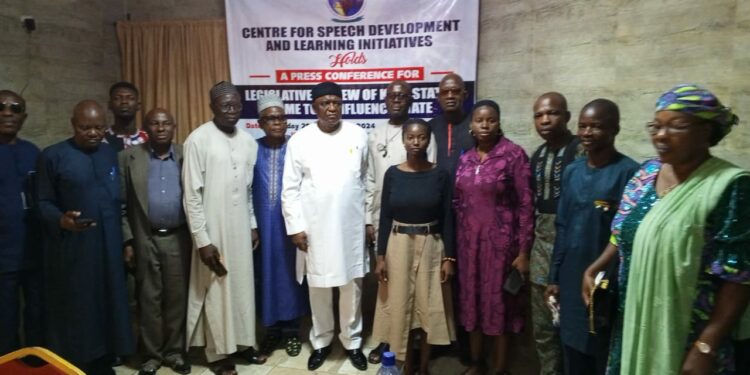Centre for Speech Development and Learning Initiatives (CESDLIN), has advocated for Kogi State to be changed to “Confluence State” as it is the host of the confluence of two of Africa’s most important rivers after the Nile.
In an interaction with journalists in Abuja, the director of CESDLIN, Dr Alex A. Maiyanga, said, in the 1999 constitution and under the General Provisions Part I 3(1), all the names of States are therein stated, which means nothing can be done except through legislative re-engineering.
He said the press conference is directed to the National Assembly at this auspicious time when the two houses have commenced the process of constitutional review.
Maiyana said: “One of the enduring legacies of the military juntas in Nigeria is the creation of States. First, the regions were replaced with 12 States in 1967 by Yakubu Gowon followed by another 12 States in 1976 by Muritala Mohammed; two states were created by Ibrahim Babangida in 1987 and nine more in 1991 and Sani Abacha completed the exercise in 1996 with 6 more states making the 36 States in the Federal Republic of Nigeria.
“In the 1999 constitution and under the General Provisions Part I 3(1), all the names of States are therein stated which means nothing can be done except through legislative re-engineering. That is why this Press Release is directed to the National Assembly at this auspicious time when the two houses have commenced the process of constitutional review.
“When William Shakespeare asked the question, ‘what is in a name?’ in ROMEO AND JULIET, he referred to the idea that names themselves are a convention to distinguish things or people, but names in themselves do not have any worth or meaning.
“However, our names are an incredibly important part of our identity. They carry very deep personal, cultural, emotional, familiar and historical connections. Names also give us a sense of who we are, the communities in which we belong and our place in the world.
“With studied realisation and confirmed by Hausa Dictionary, the word Kogi means a River. The word ‘Kogi’ is also a Chibchan language of the Colombians. The Kogi speaking people of Colombia are almost entirely monolingual and maintain the only unconquered Andean civilisation.
“The pertinent question to be asked today is: which of the above ‘Kogis’ did Babangida and his Military Council select and why?”
He added: “From my studies, the names of the 36 States in Nigeria have their names stemming from historical, geographical and cultural influences. For instance, Abia is said to be an acronym from the four main groups of people as at the time it was formed in 1991 i.e. Aba, Bende, Isuikwuato and Afikpo, Taraba state is derived from Taraba River which traverses the southern part of Taraba.
“Adamawa State is named after Modibo Adama, a Fulani warrior who founded the Adamawa Emirate. Akwa Ibom is named after Kwa Ibo River which runs through the state into the Bight of Bonny. Bayelsa is said to be derived from the State’s major local government areas: Brass (Balga), Yenagoa (Yelga) and Sagbama(Salga).
“Why did Babangida and his military cohorts bury one of Nigeria’s most gigantic geographical blessings of the two huge rivers-Niger and Benue with an amazing, breath-taking Confluence at Lokoja, the state capital.
“Of all the names of the states in Nigeria, none has the misfortune of being named after other people’s word. In Kogi, all the ethnic groups have a name for a river, why was none selected from amongst them?
“Worse still, Nigeria recognises the English language as the official language of communication. Babangida and the Supreme Military council communicated wrongly as far as the nomenclature of Kogi state was concerned-it was a linguistic and constitutional aberration.
“It is on record that even countries can have their names changed as in the case of Burma to Myammar; Upper Volta to Burkina Faso and Gold Coast to Ghana. Consequently, the renaming of Kogi state is not a tangible thing to do by the National Assembly.
“The present geographical and political area called ‘Kogi’ is the host of the Confluence of two of Africa’s most important rivers after the Nile; and it should be so-named Confluence State.”



